As I go about my day, I often wonder whether there is any possible way for humans to save our planet earth from the downward spiral it’s currently on. My neighbors spray chemicals on their lawns left and right. The traffic congestion and subsequent exhaust in Atlanta is out of control. Overseas companies are polluting our planet at an alarming rate. So, what’s a green blogger to do? I can’t control what everyone ELSE in the world is doing but I can control what *I* do to save our planet earth. Maybe it is just using cloth napkins instead of paper. Or buying organic produce. Or choosing to NOT use plastic cutlery. Yes, today I am going teach you how we can each do our own small part to save the planet one fork at a time!
Posts feature partner companies & may be sponsored. Post contains affiliate links & I will be compensated if you make a purchase after clicking on links. As an Amazon Associate I earn from qualifying purchases.
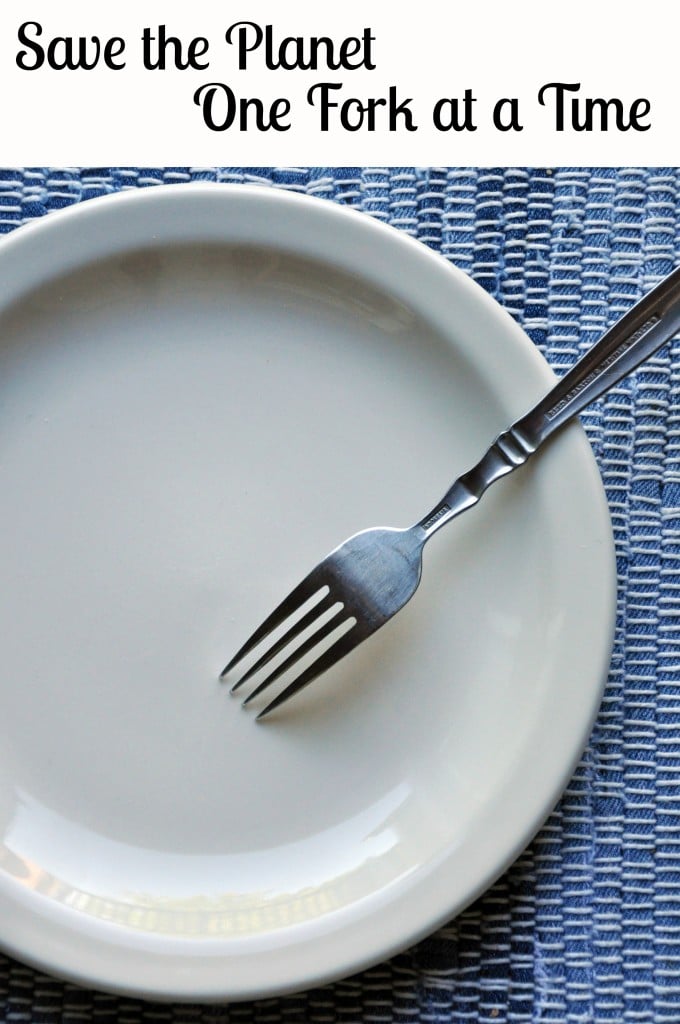
Did you know that your average plastic fork is made of petroleum products and can take up to 100 years to decompose? As it decomposes (very, VERY slowly) it releases toxic substances into our soil and groundwater. These seemingly harmless little forks travel immense distances, using significant amounts of packaging and fuel, and after about 10 minutes of shoveling cake into your mouth, they go into the trash. Sure, you don’t have to waste water and soap washing them but the environmental impact of that plastic fork is significant. You may just see it as ONE plastic fork. But how many plastic forks are actually thrown away each year? Worldcentric.org estimates 40 billion plastic utensils are used every year in just the United States. That is a whole mountain of non-biodegradable plastic *stuff* in our landfills that really doesn’t need to be there. So, what can we do to save our planet earth from the plight of the plastic fork? Here are a few tips:
Table of Contents
Save Our Planet Earth One Fork at a Time
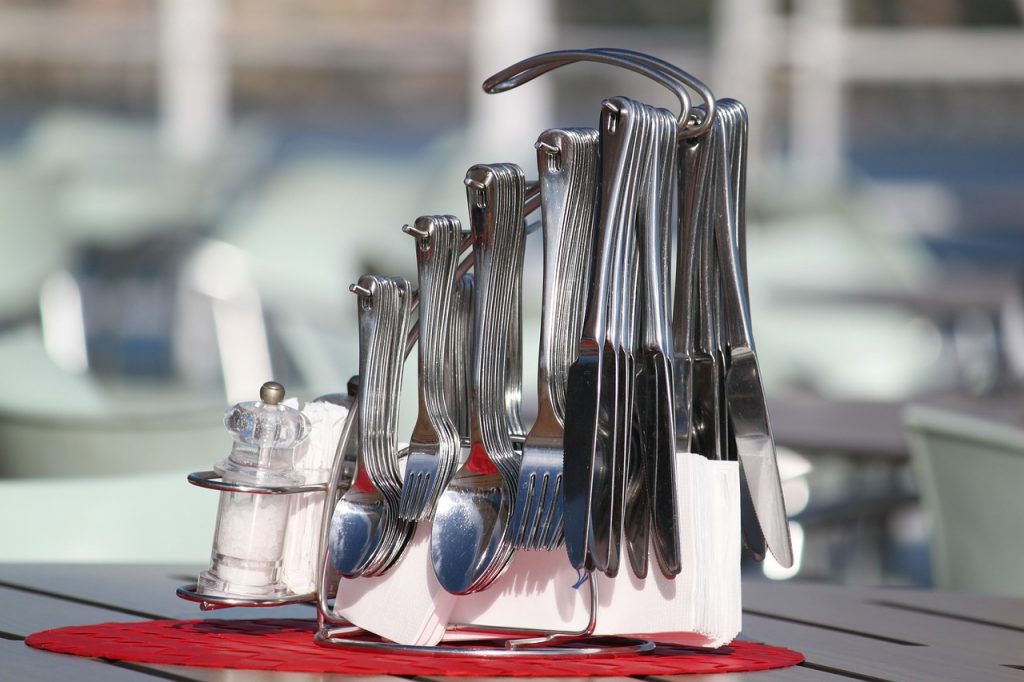
✯Don’t want to miss the next post?✯
Follow Turning the Clock Back on Facebook | Twitter | Pinterest
Or join the private Facebook group for simple tips on going green!
1. Shop Cheap: Hit up Good Will and your neighborhood garage sales to find stainless steel cutlery for only a few pennies. I send my kids with lunchboxes every day and inside is a fork. I don’t know if that fork is actually going to make it home. They are teens and not known for their attention to detail. Since I don’t want to lose my nice, matching cutlery, I don’t send them with anything I can’t stand to lose.
2. Choose a plastic alternative: I have found a number of options at Whole Foods that are disposable but not plastic. Forks, spoons, and knives made of corn-based products or even bamboo. These are good alternatives when you are taking your lunch somewhere and you know you will have to throw the trash out. Kids field trips always seem to demand ‘disposable only’ lunches which annoys me, although I understand why my kids’ teachers don’t want to be responsible for lost forks. These are also a good option if you are throwing a party and really don’t want to deal with washing 50 forks, knives, and spoons. Of course, compostable cutlery may not really be as great as it sounds. Check out My Plastic Free Life for more details about THAT. If you do choose that route, shop through my Amazon affiliate link for a compostable fork or bamboo disposable cutlery to use instead of traditional plastic.
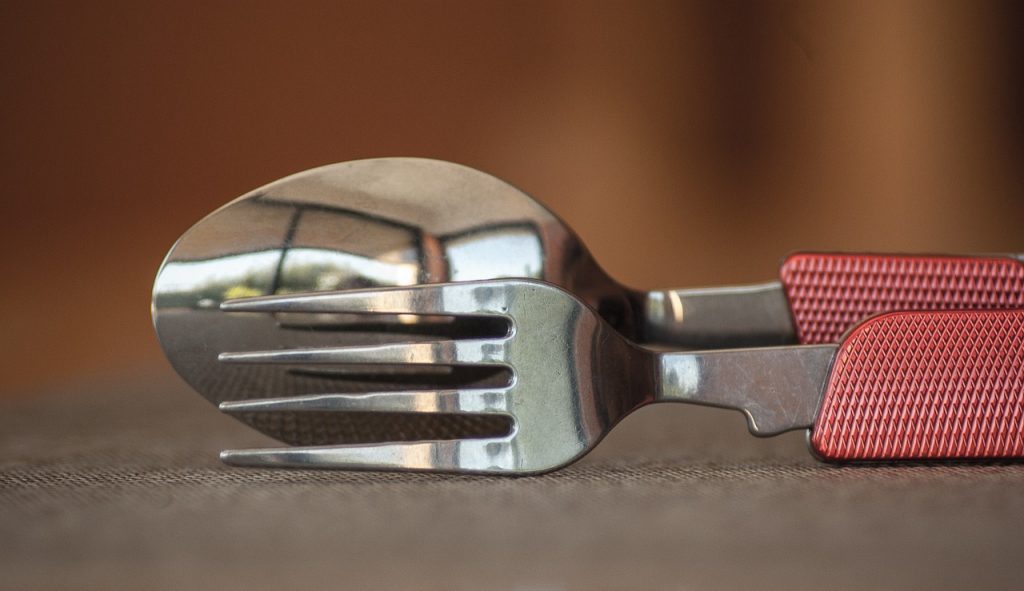
3. Think Ahead: Keep these non-plastic forks in your glove box, desk drawer at work, or wherever you think you may be eating and need a fork. Keep a few just in case your coworker shows up with a plastic fork. You can do your good planetary deed of the day and educate her on the evils of the plastic fork. Save our planet earth by educating others whenever the situation arises!
4. Just say no to plastic forks: If you are eating out and the helpful wait staff offers you plastic cutlery, ask yourself if you really need it. Are you going to eat those fries with a fork? Can’t you just pick up those popcorn chicken finger things with your fingers instead of forking them to your mouth?
5. Consider recycling: Check with your local recycling center to find out whether they accept plastic cutlery. In general, plastic cutlery is a ‘6’ in recycling terms…made of polystyrene. Not recyclable in many locations but a few larger facilities may accept them for recycling.
In general, it is not recommended that you reuse plastic forks, although I admit I am guilty of this. They are really not designed for reuse and the plastic can break down and lead to an assortment of issues. But, when one finds it’s way into my house I hate to throw it away. I could try to come up with some other creative way to use it but I am not particularly crafty when it comes to turning plastic forks into, say, a human skeleton. I am much better off trying to get my kids to stop bringing home plastic forks on the rare occasion they buy lunch at school.
So, I would like you to take a moment today to think about how many plastic forks YOU have thrown in the trash can in your life. While skipping plastic silverware may not be the fastest way to save our planet earth, it is a step in the right direction when it comes to reducing your own carbon footprint.
So, will you be saving the planet and skipping the plastic fork?
Enjoy this post? How about this one?
Green and Healthy Picnic Ideas for Summer Fun!
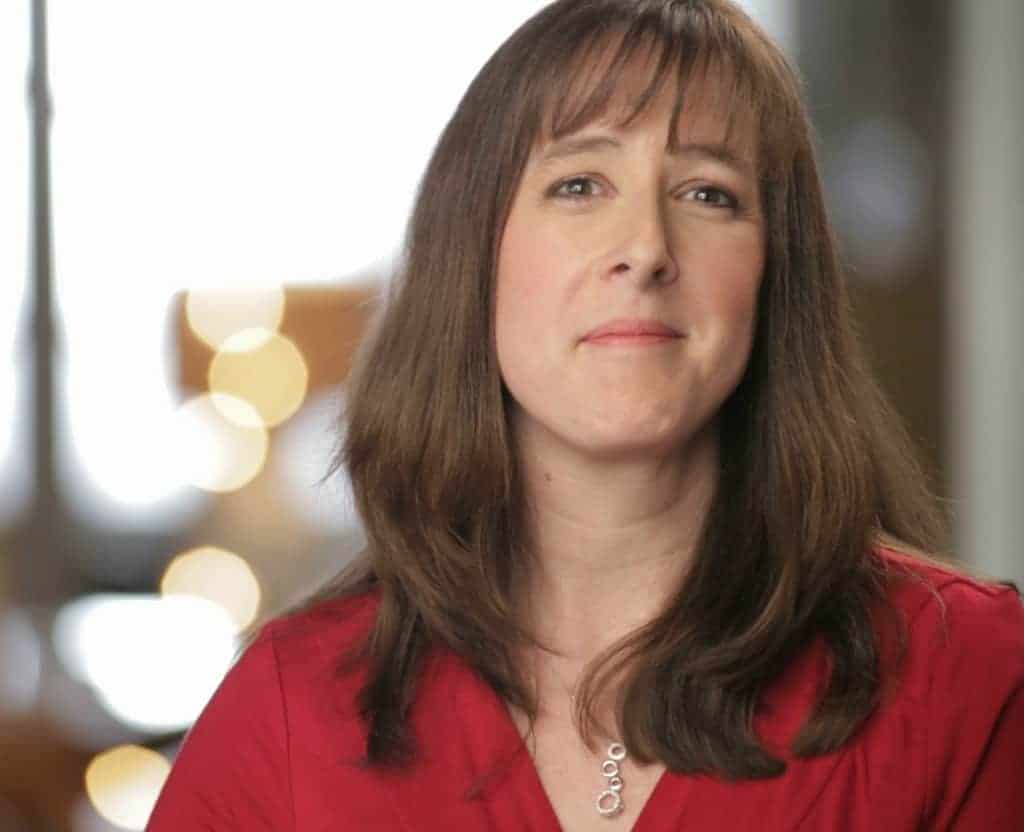
Diane is a professional blogger and nationally certified pharmacy technician at Good Pill Pharmacy. She earned her BS in Microbiology at the University of New Hampshire and has worked in cancer research, academics, and biotechnology. Concern over the growing incidence of human disease and the birth of her children led her to begin living a more natural life. She quickly realized that the information she was learning along the way could be beneficial to many others and started blogging and freelance writing to share this knowledge with others. Learn more about her HERE.

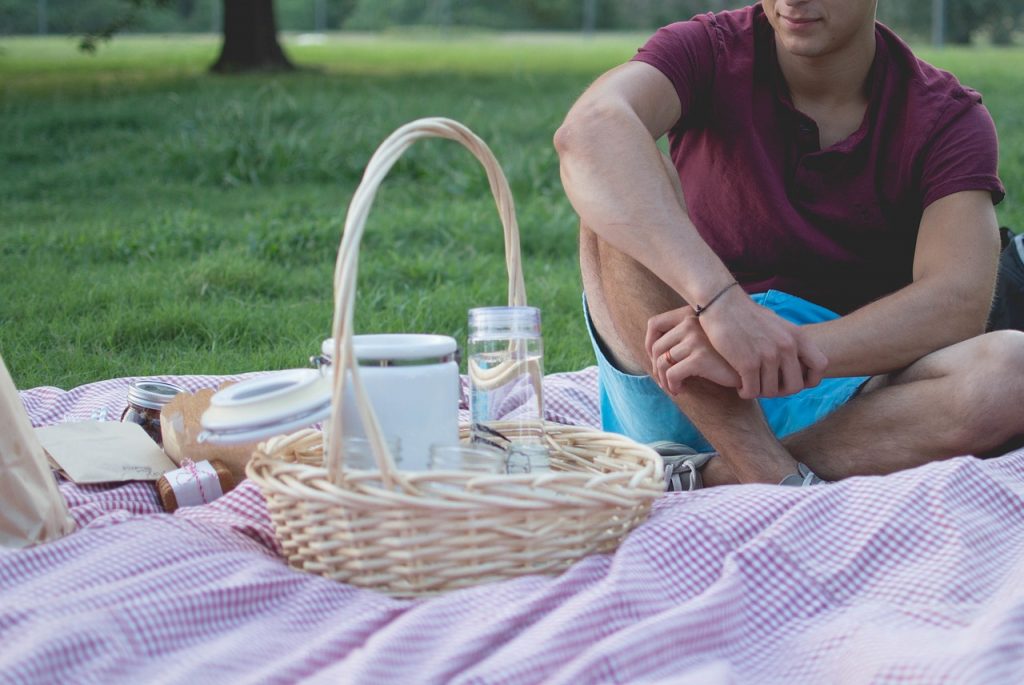
Great post, Diane. And thank you for mentioning My Plastic-Free Life. Interesting story about Worldcentric. I was on a panel with a guy from that company who told us they found polypropylene plastic in some utensils that other companies were advertising as plant-based and compostable. Before the folks at Worldcentric congratulated themselves too much, they decided to double check their own compostable utensils, andlo and behold there was plastic in theirs too. So they changed manufacturers and have put procedures in place to make sure that doesn’t happen again. These problems occur because manufacturers of plastic products are very secretive about their proprietary formulas.
Plastic seems to be a way of life for some people and I’m sure manufacturers use it because it is cheap but it is definitely having a huge impact on our environment. Every time I eat lunch with my kids I cringe at the waste!
I really don’t like disposables. Unless there is some rule that I cannot bring real dishes/silverware somewhere, that’s what comes with me.